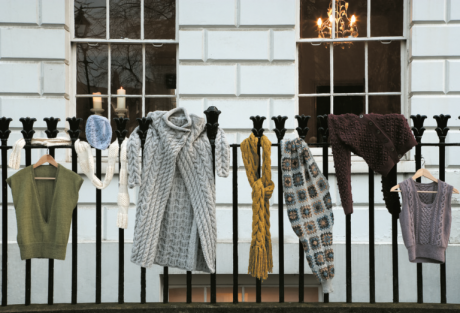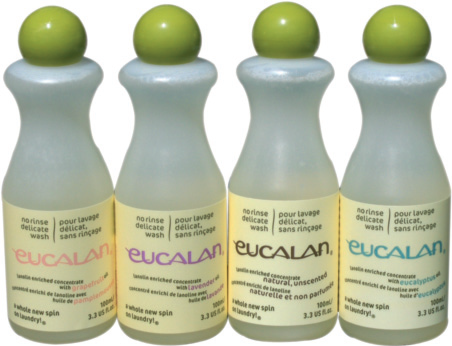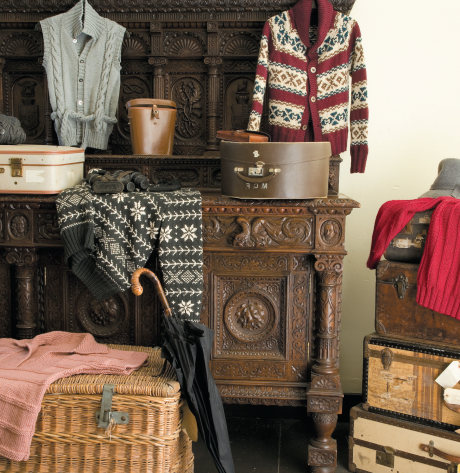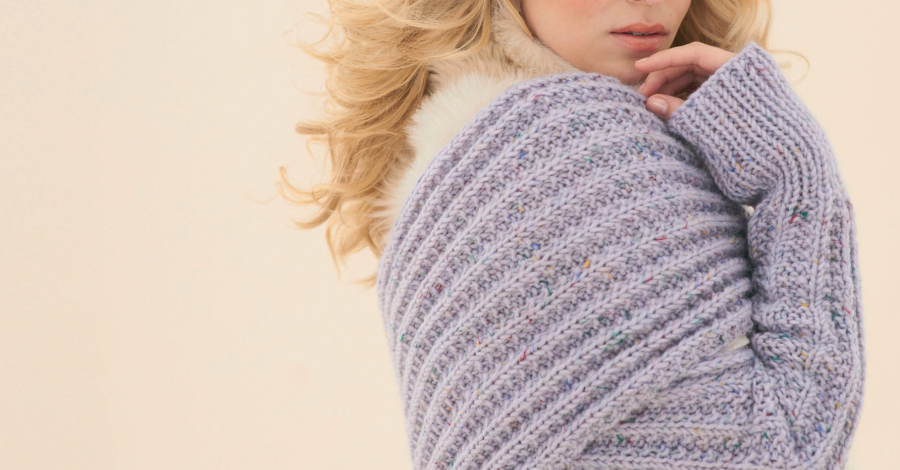Keep your handknits in tip top condition with a little bit of expert advice
When you’ve spent weeks working on a project, the last thing you need is for your efforts to be ruined by stubborn stains or marred by moth damage, which is why we’ve asked the experts for their top tips for cleaning your knits!
Cleaning clinic
Laundry specialist The Garment Spa shares its knitwear cleaning knowledge

What are the main areas of focus for cleaning woollen garments?
All garments are carefully inspected for stains and soiling, which are then pre-treated with pre-spotter soaps before dry cleaning. A low temperature is used with a reduced mechanical action to avoid felting of the wool. After cleaning, knitted items will be hand finished, being gently steamed on a press. Acrylic yarns are more susceptible to heat and can lose their shape easily and very delicate woollens or loosely knit garments are dry cleaned in a net bag to ensure there are no abrasion or snags from other garments.
How do the different products you use work on wool?
Different stains and fabrics need different treatments. We use perchloroethylene, which is a degreaser. We also use dry cleaning soap which gets rid of water soluble stains, and re-texturing agents that put softness and body back into garments. We have to be very careful as different materials react badly to certain chemicals. For example, as wool and silk are protein fibres, a protein catalyst would not be used because it would digest them. Having trained, experienced staff is absolutely essential.
Do you have any tips for home cleaning?
If cleaning wool at home, hand wash in cool water using natural soap flakes, use a very light spin dry to help reduce creasing, then lie the garment flat and allow it to dry naturally. Once dry a D-Fuzz-It sweater and fabric comb will gently remove fuzz from knitted fabrics. Finally, always make sure woollens are clean before putting them away to prevent moths. www.thedrycleaningco.com
Wool-wise washing
Wool easily loses shape if washed incorrectly, and in the worst case scenario you could end up with a garment a fraction of the original size. If an item is heavily soiled (for example, with food or mud), spot clean the area with a brush to remove the dirt, then rinse through with cold water. To avoid shrinking, soak woollen items in cold water for a few hours prior to washing.
NOTE: Be careful when removing items from being soaked – the weight of the water can potentially misshape a garment, so take care not to pull on the edges, and drain the water away before lifting.
Eucalan is a no-rinse wash containing a touch of lanolin in the formula that is a natural conditioner and helps deter insects. Suitable for both hand and machine washing. (£3.65 per 100ml, www.abitwoolly.co.uk)

Nikwax Wool Wash is created specially for cleaning and maintaining the natural qualities of wool garments, cleaning between fibres and enhancing the wool’s properties. For stockists, visit www.nikwax.co.uk

Soak is a gentle, rinse-free formulation, deliciously scented with fabric-friendly ingredients that revitalize fibres so they look great and last longer. It is biodegradable, phosphate-free, non-toxic and dye-free. Even the label is recyclable and printed with environmentally safe inks. (£15.00 per 425ml bottle, www.thelittleknittingcompany.co.uk)

Bright Idea!
If you find a woollen garment does shrink slightly, it is possible to restore it by wetting the item thoroughly with cool water, then carefully stretching it back to its former size.
Do it yourself
To make your own cleaner, you will need;
- Four cups of soap flakes
- Four cups of boiling water
- One cup of methylated spirits
- One tablespoon of eucalyptus essential oil
1. Put soap flakes and boiling water into a large bowl and mix with an electric blender. Add methylated spirits and essential oil and blend again. Pour mixture into a large jar and leave overnight.
2. To use, rub a small amount directly onto stains or dissolve one tablespoon into water. Ensure water isn’t hot as this could lead to felting – where loose fibres in the yarn tighten and become matted.
3. Once washed, lay item down on to a towel and daub excess water off gently. Don’t twist or wring it out, or lift whilst it is still wet. Leave to air dry.
Storage solutions

Linda Gardner, owner of Strathearn Fleece and Fibre and co-organiser of Strathearn Wool Week, shares her top tips for safe storage
1. Wool garments should be stored out of sunlight otherwise dyed wool may fade over time and will do so unevenly, depending on where the sunlight hits, giving an unwanted stripy effect.
2. As wool is a natural product, it will attract moths, so as a precaution it is best to place some moth repellent in the wardrobe (be careful to keep away from pets and children). Check garments regularly and store individually to reduce cross-contamination. If you are concerned about infestation in wool or garments, placing in freezer bags in the freezer for several days will kill off moths and eggs.
3. Store your knits flat on shelves rather than hanging them in the wardrobe. If hung, the weight will elongate the garment, pulling it out of shape.
4. Storing in boxes means the garment won’t permanently crease from the weight of other garments on top. Either buy storage boxes, ziplock bags, parcel boxes or gift boxes.
5. Cardboard boxes can also be obtained from supermarkets, but make sure they are clean before use. Line with unbleached tissue or brown paper.
6. Make sure the garment is clean and completely dry before storing. If not, it is susceptible to moulding. A little care will give a garment that gives years of pleasure! www.perfectweatherforspinningandknitting.blogspot.co.uk







_333_180_c1.png)

 Baby
Baby
 Toys
Toys
 Garments
Garments
 Crochet
Crochet
 Homewares
Homewares
 Dolls
Dolls



Share